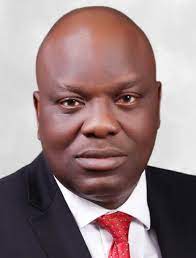The Nigerian Communications Commission (NCC) has charged the nation’s Judiciary to be part of Information Communications Technology (ICT) trends in view of the impact and relevance to ways that justice is being delivered globally.
The commission’s Board Chairman, Prof. Adeolu Akande, made the call during the 18th capacity-building workshop with the theme ‘The digital world and the future of adjudication’ organized for Nigerian judges, which kicked off on Tuesday in Lagos.
Akande urged the legal luminaries to make greater contributions towards ICT development in Nigeria and harped on the centrality of a functional adjudicatory system as the bedrock for any civilized society.
He stressed the need to constantly equip judicial officers with the requisite skills for effectual adjudication, especially in the digitized world, where the rate if technology development t is fast ahead of laws.
In his address at the forum, the NCC’s Executive Vice Chairman/CEO, Prof. Garba Danbatta, noted that the Internet came with several challenges, hence the need for judges to be exposed to the benefits as well as the challenges associated with new technologies.
The EVC said through the workshop, judges would be exposed to disruptive technologies, the rights of data subjects, and jurisdictional issues in the digital age, which have continued to make the ICT industry a dynamic one.
He explained: “The increased reliance on telecommunications, as well as the growth experienced in the sector, has introduced some issues of legal connotation which will be deliberated upon by various experts during this workshop. One of such issues is the ownership of online content and materials.
“So, it is envisaged that with the increase in the amount of online content, as well as the economic value attached to it, there will be a rise in conflicts as to ownership of online content and materials.
“It is necessary that your lordships are well prepared for the imminent increase in litigation in this area. Furthermore, with an increase in the number of transactions and businesses taking place in the online space, it is also expedient for your lordships to be exposed to the peculiarities of adjudicating conflicts in this era of digital presence and online identity”, Danbatta added.
In his remarks, the Chief Justice of Nigeria (CJN), Justice Olukayode Ariwoola, commended the Commission for the annual forum and assured the management of the commitment of the judiciary to using technology for justice dispensation as well as support a more robust legal ecosystem for sustaining socio-economic growth of Nigeria through telecoms sector.
Represented by one of the Justices of the Supreme Court of Nigeria, Justice Kudirat Kekere-Ekun, the CJN pointed out that through the use of ICT, the judiciary had improved, not just in judicial administration and services, but also in infrastructure.
Ariwoola further said that regardless of the benefits of digitalisation there were bound to be liabilities and risks involved with its introduction and usage, highlighting some of such risks as including cyber-crime, data piracy, and hacking among several other vices.
He explained: “Our judicial system has been challenged with delays in dispensing justice. However, with the introduction of ICT into the judicial space, many of the difficulties associated with the conventional methods are gradually being dispensed with.
“The Nigerian judiciary is committed to achieving lasting structural and ethical reforms that would reposition it to adequately meet the aspirations of court users and the public for the reliable, effective and efficient administration of justice through the use of ICT”, the CJN added.






